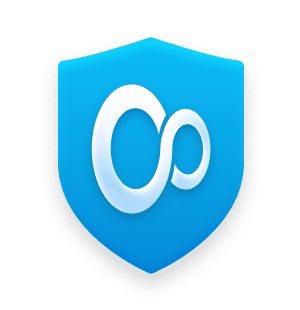How Often Does Cybercrime Happen?
Have you ever been affected by cybercrime or know someone who has? You might be looking to gain insights into how it exactly happens, and hopefully, know how you can use that knowledge to protect yourself.
In this article, we explain what cybercrime is, how it’s committed, and how it can be prevented using an effective security tool. Let’s get right into it!
What Are Cybercrimes?
Cybercrimes are criminal activities committed using the internet to target a device connected to a network or the network itself. Some examples of cybercrimes are:
- Phishing - cybercriminals can email or contact you pretending to be from a well-known and reputable organization only to solicit personal information from you.
- Cyber extortion - is a crime where someone holds your data hostage hoping you will oblige to pay them a ransom.
- Identity theft - happens when cybercriminals obtain someone’s personal information to use it to commit fraud by pretending to be that person.
What Danger Do Cyber Attacks Have for Your Data?
Cybercriminals compromise your device or network security with the sole aim to steal your identity and confidential information, which may include your identity card(s), banking details and credit information, medical information, intellectual property, and even passwords to your online accounts. Cybercriminals may even obtain very sensitive data about your family which may be used maliciously to commit crimes.
You may be asking yourself how often cybercrime happens, and you might be surprised to learn that these crimes are committed daily around the clock, there is not a minute that passes without any cyberattacks being committed.
Cybercriminals can be found in any part of the world where there’s the internet, some operate as rogue individuals, and others in well-organized syndicates. A study done by A. James Clark school at Maryland University quantified the near-constant rate of hacker attacks on computers with Internet access - every 39 seconds on average.
How to Prevent Hacker Attacks and Data Leakages?
Cybercrimes are very common and can’t be outright prevented from being committed, but they can be intercepted and stopped in their tracks. There are 3 precautionary measures that you can make use of to reduce security risks to your data.
- Ensure that you have secured your devices and accounts with a strong password.
- Ensure that you protect your data by employing encryption.
- Ensure that no unauthorized persons/parties are given permission to access your confidential data.

How VPN Unlimited Can Protect You Against Cybercrimes?

You can protect yourself from cyberattacks and data leakages by using an effective VPN, KeepSolid’s VPN Unlimited is a cybersecurity tool that is available to help you prevent hacker attacks that require your IP address.
It’s designed to offer users uncompromisable security for their data, relying on military-grade encryption protocols that are highly impenetrable.
Using VPN Unlimited redirects your internet traffic to provide you with a secure private connection that is encrypted, your internet activity and IP address are hidden from third party websites and hackers, not even your internet service provider can be privy to your online activity and data.
VPN Unlimited benefits you in the following ways:
VPN Unlimited Benefits
Protects you when using a public network or a shared public Wi-Fi. All the data that is sent via the network is 100% secured.
Your location remains anonymous and you can use the internet without leaving any traces that hackers can pick up.
KeepSolid does not keep a log of your metadata, connection times, downloads, or server usage. All you do is only known by you!
You can use VPN Unlimited on as many devices as you own on a single subscription plan.
Try VPN Unlimited now!
Ensure the safety of your data and network security by choosing a trusted name
VPN Unlimited is also part of MonoDefense security bundle.